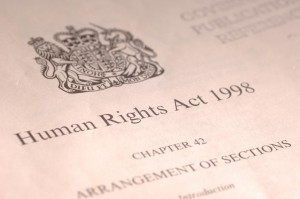
Derek Whayman (PhD Law, Newcastle University) d.r.whayman@newcastle.ac.uk
Supreme Court TV has been live since May 2011, running on the same infrastructure that brings Sky Sports to your computer or mobile device. But does it have any practical use to the student of law? If the sheer number of members of the public coming in but leaving quickly is anything to go by, it’s a minority interest. Moreover, court hearings have a reputation for being slow and difficult. Some would even say boring. But sometimes, a case will come up of intense interest to the would-be viewer. After all, the test for permission to appeal is whether the case is of public interest or if it might ‘raise an arguable point of law of general public importance which ought to be considered by the Supreme Court’. In other words, if it is one’s hobby-horse.
That attracted me to the appeal of FHR European Ventures LLP v Cedar Capital Partners LLC. I watched the 2½ day hearing from 17–19 June 2014, before an expanded, 7-judge court on account of its importance, naturally. Yes, it is possible to take a number of useful things from it, both in terms of legal argument, strategy, as well as – perhaps – how the Court is minded to develop the law. To assist anyone who is thinking of using this resource, here follows a report, guide and analysis of this experience.
FHR v Cedar is the latest instalment of the long-running saga as to whether the claim for taking a bribe or secret commission in breach of fiduciary duty yields a personal or proprietary remedy, following Sinclair Investments (UK) Ltd v Versailles Trade Finance Ltd, A-G for Hong Kong v Reid and Lister & Co v Stubbs (1890) 45 Ch D 1 (CA). Issues included whether a proprietary remedy was available at all, under what circumstances, and whether there was a personal disgorgement remedy in its absence. By ‘disgorgement’ what is meant is access to profits made by the wrongdoer above and beyond the principal sum extracted, for instance by investing the bribe profitably. The proprietary remedy does this but has other ramifications.
The secret commission in question was the €10m taken by Cedar when brokering the sale of a hotel to FHR. FHR were upset, supposing very reasonably that they had paid €10m more than they ought to have, and wanted the €10m for themselves. A proprietary remedy would make it much easier to enforce the judgment already obtained – FHR had already won the trial on liability.
So, what can one expect?
First, you need to know the applicable law inside out. You do not have the written Case (on which see Paterson) and the advocates will not take you through their arguments fully. Or they might try, but there is so much judicial intervention that they will not be able to. Ideally, you should be able to name cases before they do. You will see debates over particular steps in the arguments. So you will not understand these debates unless you already know the arguments.
Second, you might well find that both sides are shy of some arguments. Matthew Collings QC, for Cedar, insisted that there should never be a proprietary remedy. It was contrary to principle, he said. Christopher Pymont QC, for FHR, argued that when the wrong was within the scope of the engagement a proprietary remedy was automatic – and since the duty was to get the best price, this was the case. Yet in Sinclair – and repeated constantly by the justices in this appeal – the court wanted to develop a principled way to decide the matter. Presumably both sides were scared that the court might adopt a more nuanced test they advanced and then find against them on the application of the facts. The client wouldn’t be pleased. Indeed, Lord Sumption complained that ‘we might go off on our own frolic.’ So it’s down to us academics to map the law. The court was very interested in the articles by Roy Goode, Sarah Worthington, Peter Watts (2012) 129 LQR 527 and was pointed to James Edelman (2012) 129 LQR 66.
Third, you might want to facepalm on behalf of the defendants’ learned counsel. If what you are arguing for (no proprietary remedy) would rob the court of its power to disgorge profits from wrongdoers in other cases, do remember to think bigger than the current case and work very hard to demonstrate that such an remedy exists. Mr Collings QC evaded the issue in the face of constant demands to discuss it and eventually got down to business during his right to reply. He relied on a single case, Tyrrell v Bank of London (1862) 10 HL Cas 26, 11 ER 934. It is, however, extremely unfortunate that in the more recent Court of Appeal judgment in Novoship (UK) Ltd v Nikitin, handed down after the hearing, many more supporting cases were mustered in support of this remedy. Oopsie. Opportunity missed.
Fourth, you can enjoy watching some judicial feuds. Lord Millett, now retired, was manifestly unimpressed by Lord Neuberger’s judgment in Sinclair v Versailles and wrote a spectacularly grumpy article criticising it. Lord Millett then arranged for some materials (from Maitland’s lectures) to be presented by the advocates. Popcorn.
Fifth, you can pick up some advocacy tips. Mr Collings QC employed a stratagem when advancing a point which really did not impress the court. By this I mean the point did not impress the court. It was from the case of Bulkley v Wilford (1834) 2 Cl&F 102, 6 ER 1094 which was flagged as important by Lord Millett. When a justice asked sharply ‘Why did Lord Millett think we needed this?’ Mr Collings QC replied ‘What Maitland says in his lectures supported by my learned friend’s approach. We suggest no use.’ Tricking the court into rubbishing the other side’s points is entertaining, but perhaps a very risky strategy. On the other hand, see point four. Lord Neuberger appeared to wake up: ‘Is this the Millett bundle?’ he replied sardonically. Ire deflected. More popcorn.
Sixth, you might find some useful arguments. A genuine debate raged around the Tyrrell case. The judgment, like many of the time, is characterised by an absence of legal reasoning. Therefore the modern lawyer is forced to ‘reverse engineer’ the judgment and order via inductive reasoning to determine the applicable principles. Mr Collings QC insisted that the monies repaid were in respect of a personal remedy of disgorgement. Mr Pymont QC insisted that they were ‘netting-off’ costs the defendant was allowed (what is often called counter-restitution).
Seventh, you can find solace in judicial humour. If, like Mr Pymont QC, you advance cases from 1805 (Ex p Bennett (1805) 10 Ves Jr 381, 32 ER 893), no matter how gingerly, you can expect comments like ‘During the Napoleonic wars’ (Lord Mance) followed by laughter. Better to make the justices laugh with you, not at you, though. Try to find something like Carter v Palmer (1842) 8 Cl & Fin 657, 8 ER 256. There, Palmer was burdened by an expensive debt in the form of a bond. He wished to obtain a settlement of it in order to escape the high dividend payments. Palmer engaged Carter, his attorney, to buy the bond as cheaply as possible for him so he could redeem it at low cost. Well, Carter did buy the bond as cheaply as possible – but for himself, and then sued Palmer for the dividends due. With friends like this, eh? What a complete … constructive trustee.
Eighth, you might not have to wait as long for judgment as with other controversial cases. For instance, it was 14 months from hearing to judgment for Foskett v McKeown. In FHR, judgment was handed down on 16 July 2014, less than a month after the hearing ended, or to put it another way, the morning after this blogpost was apparently finished. A proprietary remedy was awarded, so FHR won in the end. Lord Neuberger apparently overruled own judgment in Sinclair (para 50). Maybe Lords Neuberger and Millett can now kiss and make up.
And that’s pretty much it. The most part of the hearing was the rehearsal of familiar arguments and an inordinate amount of judicial intervention. To quote learned counsel elsewhere: ‘why would I want to go to London just to be mugged by seven old men?’ The rewards are there, but they are scanty. The nuances and subtleties keep you going, but these are real insiders’ rewards. Don’t try to take anything from Supreme Court TV without being prepared – being very prepared. It won’t give away anything easily. On the other hand, once prepared, it is possible to see legal argument in action that is very relevant to writing a good essay. Just remember to write more formally if you decide to take ideas from this piece – it’s a gossipy blogpost, not an academic essay.



